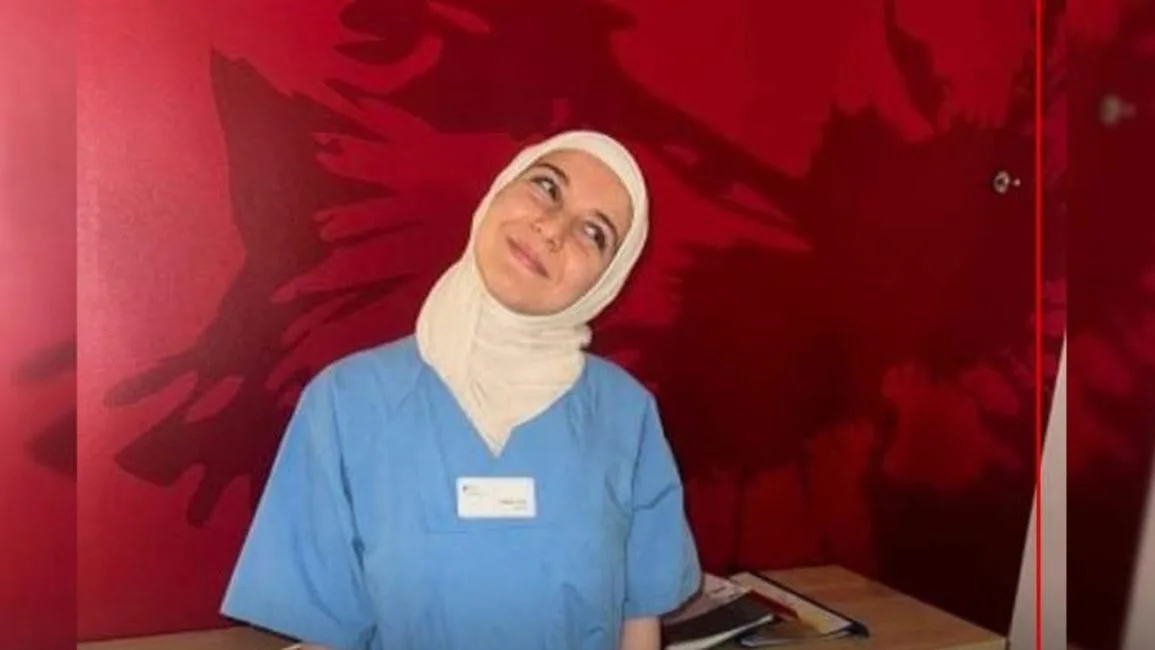Algerian Woman Rahma Ayat Killed in Germany: A Tragic Case of Islamophobia

has sparked widespread outrage among Arab communities, many German citizens, and official circles in Algeria. The young woman, who had moved to Germany two years ago to study nursing, was brutally stabbed by her 31-year-old neighbor inside her apartment in Hemmingen, Lower Saxony.
According to family members and local reports, Ayat had repeatedly complained to German police about her neighbor’s harassment and verbal abuse, often targeting her hijab and Muslim identity. Sadly, these complaints were reportedly not taken seriously enough, leading to a tragedy that could have been prevented.
🔴مع تنامي الإسلاموفوبيا بأوروبا.. الجزائرية رحمة عياط ضحية جديدة للعنصرية في ألمانيامع تنامي الإسلاموفوبيا بأوروبا.. الجزائرية رحمة عياط ضحية جديدة للعنصرية في ألمانيا pic.twitter.com/A8fomsX5UO
— Ennahar Tv النهار (@ennaharonline) July 11, 2025
Downplaying hate crimes
Observers and activists have criticized the response from right-wing media outlets, such as Bild, accusing them of trying to frame the crime as a “personal dispute” rather than acknowledging its racist and Islamophobic motive.
“She was constantly reporting her neighbor’s threats and racist insults not only to her family but also to the police, who did little to stop him,” Palestinian journalist Faiz S. told Al-Araby Al-Jadeed.
Already a week since Rahma Ayat an Algerian nurse in Germany was stabbed by her Islamophobic neighbor for wearing the hijab, yet mainstream media remains silent because Muslim lives are disposable.
May Allah ﷻ accept her steadfastness and grant her the highest place in Jannah. pic.twitter.com/9QkBLCtr7V
— S. (@soniminds) July 10, 2025
The tragedy comes amid a broader rise in far-right influence in Germany, with parties like AfD (Alternative für Deutschland) gaining popularity and some politicians openly making inflammatory statements against immigrants and Muslims.
Anger within Arab communities
The murder has triggered protests and collective grief among thousands of Algerians living in Germany, many of whom attended Ayat’s funeral prayer before her body was repatriated to her hometown of Oran, Algeria.
The Algerian government officially condemned the crime and summoned the German ambassador, calling for a thorough investigation and accountability. Algerian embassies and consulates in Germany have also reaffirmed their commitment to protecting the rights and safety of Algerian citizens abroad.
Criticism of official response
Human rights activists and migrant community advocates argue that the German authorities’ handling of the case reflects a broader pattern of neglect towards crimes targeting migrants.
“Even some feminist groups ended up describing the murder as a ‘domestic violence’ case rather than acknowledging it as a racist hate crime,” one activist noted, highlighting how this narrative undermines the actual motives.
They contrast this muted reaction with other recent cases where non-German suspects were quickly labeled as criminals or even terrorists by media and officials, while German perpetrators of racially motivated attacks are often portrayed as “mentally ill” or “acting alone.”
A broader context of rising Islamophobia
Germany has seen a worrying series of hate crimes and racist attacks over recent years. Just a week before Ayat’s death, German police in Stuttgart fatally shot a young Algerian man during a pursuit. In other high-profile cases, German far-right extremists have targeted hijab-wearing women and minorities.
The murder of Egyptian woman Marwa El-Sherbini in 2009 — stabbed to death in a Dresden courtroom by a neo-Nazi while pregnant — remains a tragic symbol of unchecked racism and Islamophobia.
Double standards in public discourse
Journalist Faiz pointed out the double standards in public discourse:
“When non-Germans are suspects, authorities and the media react strongly, push for deportations, and dominate headlines. But when a German commits a hate crime, the motive is often downplayed or excused.”
These inconsistencies fuel frustration among migrant communities, who feel that their safety and dignity are less protected by the system.
A call for accountability and change
The tragic death of Rahma Ayat is more than an isolated incident; it is part of a larger pattern of growing hate crimes against Muslims and migrants in Europe. Activists, family members, and observers are demanding not just justice for Rahma but broader reforms to ensure such crimes are recognized and prevented.
As debates continue, the hope remains that Rahma Ayat’s story will serve as a catalyst for real change — so no one else has to pay the price of hatred.




